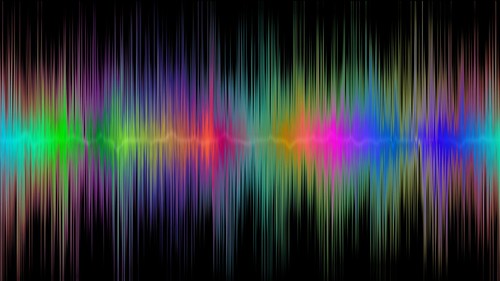Course syllabus
SEMESTER 1, 2017 LINGUIST 201: Phonetics and Phonology
15 points
Teaching Staff Office Office hour
Jason Brown (Coordinator) Arts 2, Room 328 Mondays 1-2 or by appointment
Brittni Smith (Tutor) Arts 2, Room 313C Tuesdays 2-3 or by appointment
Course delivery format
2 hours of lectures and 1 hour of tutorial
Lecture times: Mon 10-11 Tues 10-11
Lecture venue: 114-G10 207-303
Tutorial times: Tues 11-12 Tues 3-4
Tutorial venues: 206-217 206-215
Summary of Course Description
There are over 6,000 languages in the world, and for most of these, communication predominantly takes place through the use of vocal speech. As humans, we are all endowed with the same basic anatomical structures that allow us to produce and perceive this vocal speech. Despite this commonality though, no two languages have exactly the same system of speech sounds - they differ with respect to the consonants and vowels that are used, the types of syllables, different intonations and so on. This course explores the areas of phonetics and phonology (the study of speech sounds), and provides a convention for describing and discussing these sounds. The course aims to address the following questions: To what extent can languages vary in their sound systems? How are speech sounds organised by languages, and how can we formalise their structures and dynamic behaviours? What are the mental objects and operations responsible for how we organise speech sounds? How does the realm of speech sounds relate to the concept of "Universal Grammar"? The course will provide students with an introduction to the descriptive and theoretical world of phonetics and phonology, with an opportunity to apply the concepts to actual language data by exploring the sounds of numerous languages of the world.
Course outcomes
A student who successfully completes this course will have the opportunity to:
- acquire knowledge of phonetics and phonology, and apply it to data
- understand and carry out a phonological analysis
- acquire skills in linguistic argumentation with respect to phonetics and phonologyWeekly Topics
|
Week |
Topic |
Coursework |
|
1: 6-7 March |
Introduction: What is Phonetics? What is Phonology? |
|
|
2: 13-14 March |
Consonants: Consonant descriptions; acoustic/articulatory phonetics for consonants |
|
|
3: 20-21 March |
Vowels: Descriptions for vowels; acoustic and articulatory phonetics for vowels |
|
|
4: 27-28 March |
Distributions I: Phonemes vs. allophones; surface vs. underlying forms |
Quiz #1 |
|
5: 3-4 April |
Distinctive Features & Rules: Features as categorization devices; natural classes |
|
|
6: 10-11 April |
Distributions II: Identifying alternations; morphophonemics, neutralization |
Midterm Test 11 April |
|
Mid-semester break: 14-29 April |
||
|
7: 1-2 May |
Syllables: Poetic meter; psychological reality syllables; constituents |
|
|
8: 8-9 May |
Rule Interactions: Rule orders in phonology; levels in phonology |
Quiz #2 |
|
9: 15-16 May |
Stress and Feet: Metrical structure; the prosodic hierarchy; syllable weight |
|
|
10: 22-23 May |
Interface with Morphology: Reduplication, minimality, non-concatenative morphology |
Quiz #3 |
|
11: 29-30 May |
Tone and Intonation: Tonal contrasts; tone vs. intonation; actions of the larynx |
|
|
12: 5-6 June |
Autosegmental Phonology: Class behaviours; assimilation as spreading; review (Reminder: Queen’s Birthday – 5 June – no class) |
|
|
Study break & examinations: 10 June - 3 July |
||
Course Assessment
- 3 Quizzes @ 10% each 30%
- Midterm Test (in class) 30%
- Exam 40%
Prescribed Texts:
- Brown, Jason. 2017. An introductory course in phonology. Chapters available through Canvas.
- Various supplementary readings available through Canvas.
Workload:
The University of Auckland's expectation on 15-point courses, is that students spend 10 hours per week on the course. Students manage their academic workload and other commitments accordingly. Students attend two hours of lectures each week and participate in a one-hour tutorial from week 2 of semester. This leaves seven hours per week outside the classroom to prepare for tutorials, assignments and the exam.
Deadlines and submission of coursework:
Deadlines for coursework are non-negotiable. In extreme circumstances, such as illness, you may seek an extension but you will be required to provide a doctor's certificate before the assignment is due. All late assignments without a pre-approved extension will be penalised one mark per day late.
Inclusive learning:
Students are urged to discuss privately any impairment-related requirements face-to-face and/or in written form with the course convenor/lecturer and/or tutor.
Academic Integrity:
The University of Auckland will not tolerate cheating, or assisting others to cheat, and views cheating in coursework as a serious academic offence. The work that a student submits for grading must be the student's own work, reflecting his or her learning. Where work from other sources is used, it must be properly acknowledged and referenced. This requirement also applies to sources on the world-wide web. A student's assessed work may be reviewed against electronic source material using computerised detection mechanisms. Upon reasonable request, students may be required to provide an electronic version of their work for computerised review.
Course summary:
| Date | Details | Due |
|---|---|---|
